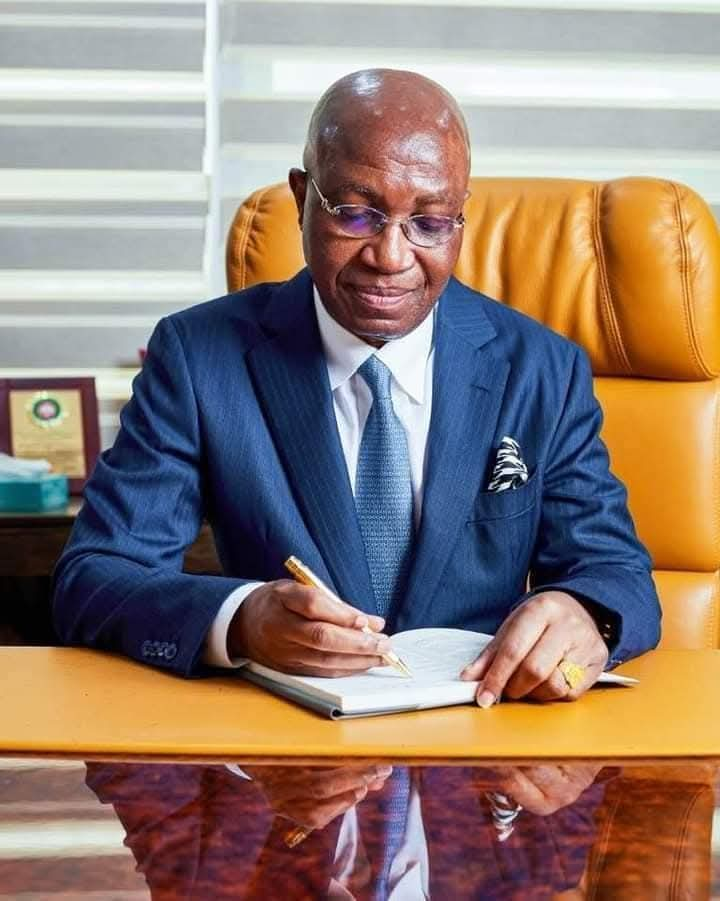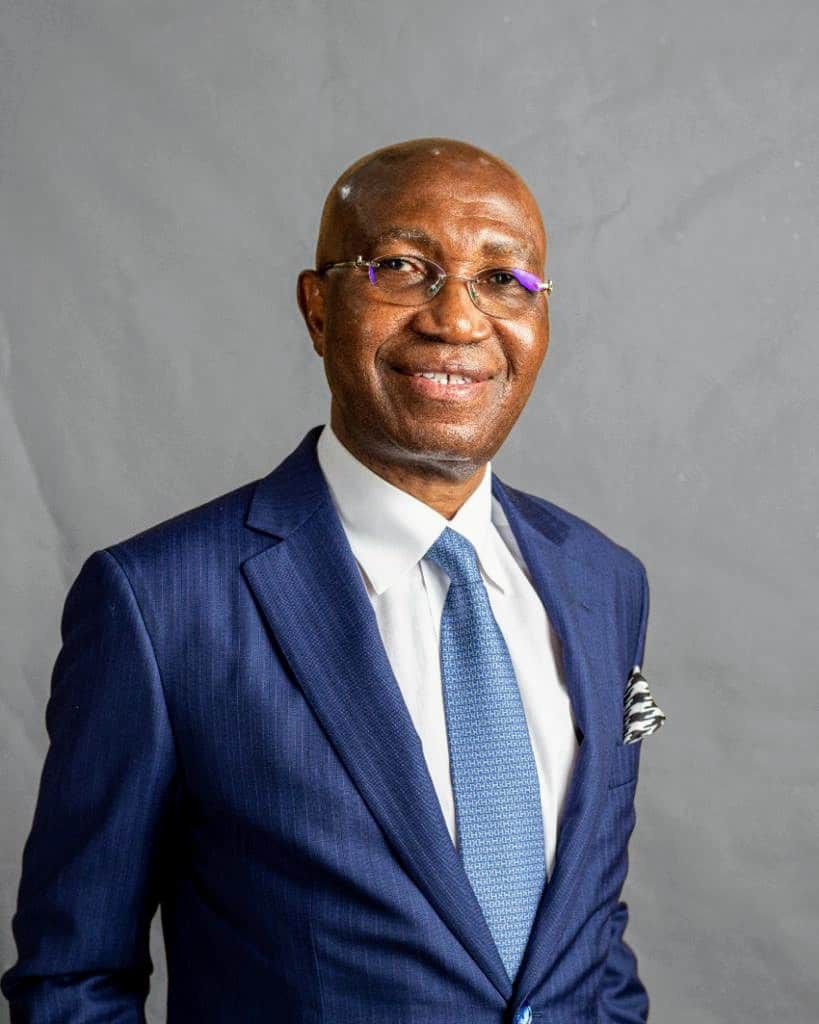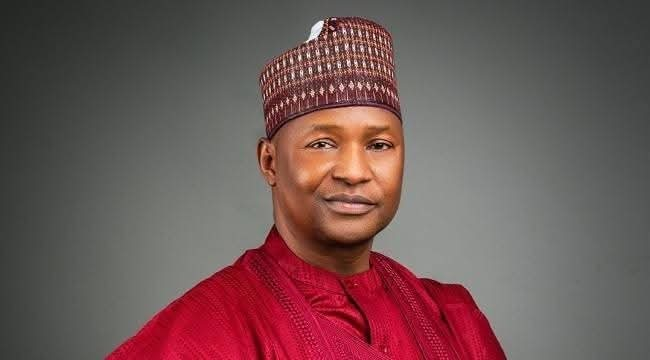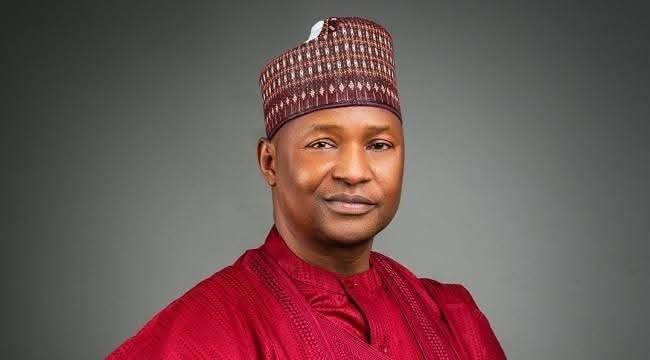News
Faleke’s Poor Judgement. By Abdulrazaq Magaji
James Abiodun Faleke was destined to be deputy governor of Kogi state. He would have been executing that office today. He is not. Poor Faleke! He has his poor judgment to blame. For now, the best trophy he gets for his misadventure in politics is former Kogi state APC deputy governorship candidate. Or, better still, Kogi state deputy governor that was not! No more, no less! This, certainly, is not a good epitaph for a politician who must have been surprised at the speed of his own rising political profile.
Pity it took Faleke this long to realise he is no more than the paper tiger he had always been! It is even pitiable that Faleke failed, in his political naivety, to realise that those who misled him by beating the weird drum to which he danced so weirdly were interested in their own agenda; not his. In his desperation, Faleke even went into an unholy alliance with former governor, Captain Idris Wada believing the diminutive aviator was working for him. But, Wada had other designs and could easily have upstaged Faleke were his case not as bad, if not worse, than that of Faleke.
Perhaps, Faleke was so fixated on and, strongly believed in the potency of Ifa to assist him to covet what was not his. Of course, Faleke must have thought Ifa gods were doing his bidding when his principal, Prince Abubakar Audu, died before he was declared governor last December. Alas, Ifa has proved, and tellingly too that, when the stress is placed on the last two alphabets, Faleke could also mean Ifa is deceitful or dishonest! The gods have played a fast one on Faleke! Were the gods angry?
Were they not, Faleke would have been more diplomatic in handling a ‘small matter’ instead of allowing it to blow into his face. His first diplomatic line of action was to have consulted with his benefactor and APC national leader, Asiwaju Ahmed Tinubu on the way forward. Faleke simply ignored Asiwaju Tinubu and chose to swim with new-found friends who knew nothing about and, contributed nothing to his emergence as running mate to Prince Audu. So painful and sad that Faleke simply allowed inexpedient counsel to abbreviate his rising political profile.
Contrary to attempts to give it a moral colouring, the Faleke case was purely legal which could not have taken any judge more than five minutes to throw out even if the complainant assembled the best legal brains around! Pertinent questions included: Had the APC candidate, Prince Audu, been declared governor at the time of his death? Were he still alive, would Prince Audu be referred to as governor-elect before the election was finally concluded on December 5? No! So, was there a valid deputy governor-elect to inherit a non-existent throne? No! And, do you have to be a lawyer to know these? Of course, not! So, what was the basis for all the hot air over a ‘small matter’?
For the benefit of fair play, right-thinking Nigerians reasoned that the death of Prince Audu provided an opportunity for the majority Igala to cede the governorship to Faleke, a minority Okun/ Kabba man to govern for the next four years before power reverts, no insults meant, to its rightful place in Igalaland! But, this would have been a moral issue that has no basis in law. And, this is why the APC did the right thing by nominating another minority, Yahaya Bello, to replace Prince Audu.
Faleke simply listened to wrong voices and surrounded himself with vultures and leeches who have now abandoned him. He might have consigned himself to political Siberia by filing to play his cards right.. It is hardly surprising that lawyers count prominent among the wrong voices that told Faleke to insist on a non-existent mandate. And their motive for pushing politically na�ve Faleke around is not because they were convinced Faleke had a valid case. And, by the way, wasn’t it the height of political naivety for Faleke to have teamed up with the son of late Prince Audu who clownishly saw the governorship as an inheritance?
If he has not done so already, Faleke should reach out to leaders of his party to indicate his willingness to work with Governor Yahaya Bello. While doing that, he should find a way to distance himself from vultures and leeches who did anything and everything to scuttle his inauguration as deputy governor last January. Faleke probably thought he was too big to be deputy governor, started acting in that direction and was egged on to what might turn out to be political oblivion. He was made to believe and, he too believed the lie, that he had outgrown the office of deputy governor.
What Faleke should do is to tutor himself about the reality of the shark-infested water of politics and outgrow the political naivety, almost bordering on bigheadedness, which is threatening to cut short a promising career in politics. Faleke was not destined to be governor of Kogi state. At least, not in 2016! And, with the odds stacked against him, there was no way the courts could have made him one! There would have been no question about Faleke being His Excellency today if election-related violence did not force the cancellation and postponement of balloting in some polling units. And slamming the Independent National Electoral Commission, INEC, for declaring an inconclusive election begged the question.
Supporters and sympathizers of Faleke who trod this path argued that INEC acted somebody’s script of ‘robbing’ their man of victory by declaring the election inconclusive! Sure? With a difference of 41,000 votes between the two top candidates and undeclared 49,000 votes, INEC could have opened itself to serious accusations if it had declared Prince Audu. And, this is without prejudice to the fact that even then sitting governor, Idris Wada, knew he had no chance on earth of turning the table at the re-run.
But, wait a minute! Would those who slam INEC have acted similarly if the shoe was on the other foot? Confronted by a similar scenario, would the APC as a political party, have kept mum even if it knew it had no hope in hell of turning the table? Those who slam INEC make the whole episode more laughable because their position presupposed that late Prince Abubakar Audu, upon being declared governor-elect, was going to hand over to Faleke! Even if that was the intention, and Faleke knew it wasn’t, it is time he comported himself and soldier on.
Otherwise, he risks making the gods angrier after they benevolently cracked his nuts for him!
News
Wole Olanipekun, Taiwo Oyedele Urge South-West Governors to Maximise Tinubu Presidency for Regional Growth

Senior Advocate of Nigeria (SAN), Wole Olanipekun, and Chairman of the Presidential Fiscal Policy and Tax Reforms Committee, Taiwo Oyedele, have called on South-West governors and political leaders to fully leverage President Bola Tinubu’s administration to drive accelerated development across the region.
The duo made the call on Monday in Akure, Ondo State capital, while speaking at a public lecture organised as part of activities marking the 50th anniversary of Ondo State’s creation.
They stressed that the South-West must prioritise massive investments in infrastructure, industrialisation, and economic reforms during Tinubu’s tenure to secure long-term regional prosperity.
Olanipekun cautioned that the political advantage of having a South-West president is temporary, noting that President Tinubu’s tenure will come to an end after his second term in 2031.
According to him, the region must act decisively within this window to strengthen its economic base and ensure sustainable development beyond the current administration.

News
BREAKING: Malami Tells Court He Earned ₦12bn+ Legitimately, Seeks Release of Seized Properties

Former Attorney-General of the Federation, Abubakar Malami (SAN), has disclosed details of his earnings while asking a Federal High Court in Abuja to set aside an interim order authorising the seizure of 57 properties allegedly linked to him.
Malami made the disclosure through his counsel, Joseph Daudu (SAN), in a motion on notice filed before the court. The application seeks to vacate an interim forfeiture order affecting three of the 57 properties currently under investigation by the Economic and Financial Crimes Commission (EFCC).
According to the court filing, Malami stated that he had fully and transparently declared his sources of income in his asset declaration submitted to the Code of Conduct Bureau (CCB).
The document outlined multiple income streams, including:
₦374.63 million earned from salaries, estacodes, severance allowances, and related entitlements.
₦574.07 million generated from the disposal of personal assets.
₦10.01 billion recorded as turnover from private business ventures.
₦2.52 billion issued as loans to various businesses.
₦958 million received as traditional gifts from personal friends.
₦509.88 million realised from the launch and public presentation of his book titled “Contemporary Issues on Nigerian Law and Practice: Thorny Terrains in Traversing the Nigerian Justice Sector – My Travails and Triumphs.”
Malami’s legal team argued that the declared earnings sufficiently explain the source of funds used to acquire the properties in question, urging the court to lift the interim seizure order.
The matter remains pending before the Federal High Court as the EFCC continues its forfeiture proceedings.



News
MAN Urges Federal Government to Stop NAFDAC’s Sachet Alcohol Ban, Warns of ₦1.9 Trillion Loss

The Manufacturers Association of Nigeria has appealed to the Federal Government to restrain the National Agency for Food and Drug Administration and Control from proceeding with its ban on alcoholic beverages packaged in sachets and small PET bottles, warning of catastrophic economic consequences.
In a statement issued by Director-General Segun Ajayi-Kadir, MAN described NAFDAC’s renewed enforcement action as detrimental to indigenous industrial operators and fundamentally inconsistent with earlier government directives.
The manufacturers’ body emphasized that NAFDAC’s recent move directly contradicts the House of Representatives resolution dated March 14, 2024, which specifically restrained the agency from implementing the punitive ban following comprehensive stakeholder consultations through a public hearing.
“Rather than abiding by the generally agreed resolution, NAFDAC bided its time and chose to rely on a resolution of the Senate that was devoid of the usual stakeholders’ engagement,” Ajayi-Kadir stated, noting that operators now face confusion over conflicting directives from different arms of government.
MAN warned that enforcing the ban would devastate Nigeria’s manufacturing sector, threatening over ₦1.9 trillion in existing investments and triggering the retrenchment of more than 500,000 direct employees alongside approximately five million workers in the indirect value chain.
The association cautioned that the restriction would paradoxically undermine public health by creating market opportunities for illicit, substandard and unregulated products beyond the control of regulatory authorities.
“This is counterproductive as it will open up the market for illicit, sub-standard, and unregulated products. It will lead to an influx of imported alternatives, mostly smuggled. It will deny the government of revenues collectable from the companies,” Ajayi-Kadir declared.
The manufacturers’ group emphasized that alcohol served in sachets by local producers is manufactured under hygienic conditions and certified by regulatory agencies including NAFDAC itself, making the ban particularly contradictory.
MAN also challenged the untested assertion that sachet alcohol drives underage consumption, citing credible and empirical research that contradicts this claim. The industry has independently invested over ₦1 billion in nationwide media campaigns promoting responsible alcohol consumption and discouraging underage abuse.
The association stressed that banning certified products would deny adult consumers with limited budgets access to regulated alcoholic beverages while simultaneously depriving the government of substantial tax revenues.
Food, Beverages and Tobacco Senior Staff Association and National Union of Food, Beverages and Tobacco Employees have joined MAN in opposing the ban, demanding that NAFDAC provide empirical evidence that sachet alcoholic beverages are being consumed by children.
Labor unions have called for the suspension of NAFDAC Director-General Professor Mojisola Adeyeye, accusing her of siding with multinational companies to undermine local manufacturers.
However, NAFDAC has maintained its position, with Adeyeye insisting that enforcement is backed by law following the Senate’s unanimous resolution setting a December 2025 deadline that has now passed.
The NAFDAC chief argued that the proliferation of high-alcohol-content beverages in sachets has made such products easily accessible, affordable and concealable, contributing to widespread misuse and addiction among minors and commercial drivers.
“This public health menace has been linked to increased incidences of domestic violence, road accidents, school dropouts, and social vices across communities,” Adeyeye stated, describing the ban as protective rather than punitive.
In contrast, civil society organization Socio-Economic Rights and Accountability Project has approached the Federal High Court in Lagos seeking injunctive orders to prevent the Federal Government from interfering with NAFDAC’s statutory powers to enforce the ban.
SERAP argues that continued circulation of sachet alcohol violates the National Health Act 2014, the NAFDAC Act and international commitments under the World Health Organization’s Global Strategy to Reduce Harmful Use of Alcohol.
The legal and economic battle over sachet alcohol highlights deeper tensions between public health regulation, economic survival and stakeholder consultation in Nigeria’s policymaking process, with no clear resolution in sight as multiple court cases and regulatory actions unfold simultaneously.
-

 News2 years ago
News2 years agoHardship: We Plan To Establish A National Commodity Board To Crash Food Prices – VP Shettima
-
News8 years ago
Blog Reader; Samson Osagiede Celebrates Fiancè Benedicta Daniels’s Birthday With Sweet Words
-
Home9 years ago
News Channel claims Donald Trump is an orphan from Pakistan,share alleged childhood photo
-
Home9 years ago
Another $175m Found in Patience Jonathan’s wife’s firm’s Bank Account
-
Home9 years ago
Oil Spillage: House of Reps Member Shares Photos of the Water her Constituents Drink .
-
Home9 years ago
Zara Buhari & Ahmed Indimi’s Wedding Access Card
-

 Sport7 years ago
Sport7 years agoModric, Marta Wins 2018 FIFA Best Player Of The Year Awards ⚽️
-
News8 years ago
The Best Video You’ve Seen Today?

